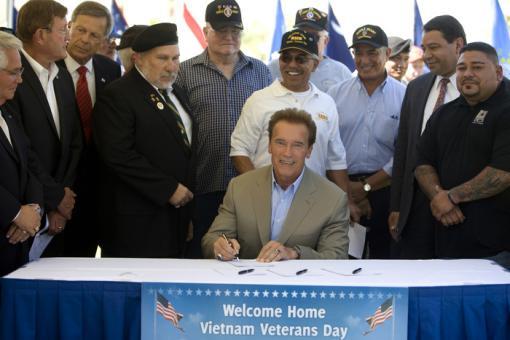LAKE COUNTY – As the state does battle in court over its decision to divert transit funding from agencies around California, Lake Transit Authority is receiving more than $1.1 million in federal stimulus funding which will help it bridge a critical funding gap.
Caltrans announced this week that Lake Transit was among several rural North Coast transit agencies receiving more than $3 million in funds from the American Recover and Reinvestment Act of 2009.
Lake Transit Authority received the most of any North Coast transit group, with an award of $1,113,956 for replacement buses and to catch up on preventative maintenance.
In Del Norte County, Redwood Coast Transit was awarded $484,529, the city of Arcata received $220,000, the city of Eureka was awarded $150,000, Humboldt Transit Authority was awarded $519,516 and Mendocino Transit Authority received $606,000.
Caltrans reported that, statewide, $34 million was awarded to 77 rural agencies.
Lake Transit General Manager Mark Wall said they began monitoring the stimulus bill at the start of the year. He said they talked to Congressman Mike Thompson's office in order to try to influence the bill.
At the same time, they were trying to find a way to close the funding gap after the state diverted all transit funding.
“We lost 100 percent of our transit funds,” he said, which amounts to about $500,000, or 25 percent of the agency's operational budget.
Overall, the award equals nearly a third of the agency's 2009-10 budget, which includes $2,025,000 for operations and $1.5 million for capital, Wall said.
Actually applying for the stimulus funds was much like the process of applying for regular federal grant funding, which Lake Transit receives every year. “The process was similar but a little more complex this time,” Wall said, with more reporting, required monthly, on these funds.
The stimulus money included no operating funds, but it did provide preventive maintenance, some of which Lake Transit was having to take from its operational budget. Wall said that helped them make their budget this year.
A total of four applications were required to get all of the funding, Wall said.
Wall said they received $205,946 for three smaller, paratransit buses and $205,000 for preventive maintenance.
They also were able to apply for intercity funding because they operate routes outside of the county, he said.
Lake Transit received $360,000 to replace four of its larger buses, $24,000 for equipment such as radios and $120,000 for bus shelters.
“We did pretty well,” he said.
Wall said they're now in the process of having to “hurry up and spend it.”
He said Caltrans was swamped with those and other grant applications from around the state. Phil Frisbie of Caltrans' District 1 office in Eureka said those applications are being processed in the agency's Sacramento office.
Wall said Lake Transit is kind of in “survival mode,” so looking into purchasing hybrid buses is off into the future.
He said their priorities are to keep everything operating, replace the buses that need to be retired out and put in bus shelters.
If they hadn't received the federal grants, said Wall, “We would have had to cut a couple of bus routes,” and the lack of funding for vehicles could have led to reliability issues.
“So this is essential to us,” he said.
Battle over state funding continues
Despite the fact that voters approved statewide propositions such as 116 and 108, which allocated funds to transportation, the governor and the legislature diverted the funds away from agencies like Lake Transit, said Wall.
At the beginning of the year, Lake Transit was told it would receive $501,000 from the state transit system, an amount which had grown from $285,000 several years before due to the inflation in gas prices. The laws included an increase for agencies based on inflation.
“When gas prices go up suddenly, transit agencies naturally pay a lot more for fuel,” and the demand for ridership grows, Wall said.
Wall said Lake Transit's ridership grew significantly when gas prices peaked, and they've kept many of those riders even after prices dropped.
The California Transit Association sued the state over the fund raid and won. The Schwarzenegger administration appealed, but the Third Appellate Court upheld the ruling and declared the public transit funding raids illegal.
The case has since been submitted to the California Supreme Court, said California Transit Association spokesman Jeff Wagner.
Wagner said it's estimated that the state has taken nearly $4 billion since the association filed its suit in 2007.
He told Lake County News that the association has yet to be notified about whether the California Supreme Court will hear the case. The court typically observes a 60-day self-imposed deadline to decide on appeal petitions, and the deadline is fast approaching, since the state's appeal was filed on Aug. 11.
If the court does accept the case, a decision could occur around March 2010, but he said it's conceivable there could be a delay in action to buy the Legislature and administration another budget cycle to get their house in order.
Wagner said the association has been advised the the court can't compel the Legislature to repay the money that it has taken, although state officials have indicated that they would be liable for the funds. “We’re not certain how the court might ultimately rule on that aspect of things,” he said.
That leaves the association in a holding pattern for now, he said.
Wall said if the appellate court decision is upheld, Lake Transit is owned more than $1.4 million in back funds.
“We need that money,” he said.
“When we look ahead another year or so, we get out to 2011, and we may be cutting service, because this federal money will be gone,” he said.
Lake Transit is currently in the process of implementing some new changes, including adding service to its route three, from Clearlake to Calistoga and St. Helena. People wanting to travel back and forth to Napa County will find that they have more schedule options, including Saturday operations.
In addition, Lake Transit has taken their route one, from Clearlake to Lakeport, and made it into two routes. One of those routes, route eight, is a Lakeport loop that runs every two hours. The main route one won't see a real change, Wall added.
He said those changes should soon be included on Lake Transit's Web site, www.laketransit.org/ .
E-mail Elizabeth Larson at This email address is being protected from spambots. You need JavaScript enabled to view it. . Follow Lake County News on Twitter at http://twitter.com/LakeCoNews .









